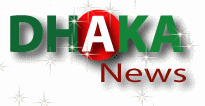Manufacturing wake up in China fell to a three -month low in Dec though mountainous tender element costs one after another to air blower inflationary pressures in a economy, an eccentric consult pronounced Thursday.
-month low in Dec though mountainous tender element costs one after another to air blower inflationary pressures in a economy, an eccentric consult pronounced Thursday.
The HSBC China Manufacturing PMI, or purchasing managers’ index, slipped to 54.4 in Dec from 55.3 in Nov as outlay as well as latest commercial operation increasing during a slowest gait in 3 months, a British promissory note hulk said.
But production wake up in a fourth quarter, as a whole, was a strongest given a initial 3 months of a year, it said.
A celebration of a mass upon top of 50 indicates a zone is expanding, whilst a celebration of a mass next indicates contraction.
The interpretation came as a yuan reached a strongest turn opposite a dollar given Beijing vowed in Jun to disencumber sell rate controls, that a executive bank executive pronounced Thursday helps cut import costs as well as quell inflation.
The People’s Bank of China set a yuan executive relation rate — a center of a currency’s authorised trade rope — during 6.6229 to a dollar, definition it has appreciated about 3 per cent opposite a federal reserve note given Jun 19.
The light high regard in a yuan has had usually a tiny stroke upon practice as well as growth, Sheng Songcheng, executive of a PBOC’s Statistics as well as Analysis Department, wrote in an essay in a Financial News.
At a same time, it benefits a world’s second-largest manage to buy by shortening import costs, easing acceleration pressures as well as call Chinese companies to turn some-more competitive, Sheng wrote, according to Dow Jones Newswires.
Despite a gains in a yuan, normal submit prices rose for a fifth true month, despite during a slowest gait in 3 months, driven especially by mountainous tender material, appetite as well as fuel costs, a HSBC consult showed.
Purchasing managers pronounced their factories were flitting upon a aloft costs to business by hiking factory-gate prices for products, highlighting a need for serve financial tightening measures, HSBC arch economist Qu Hongbin said.
Manufacturing activity in China slows
1347 Total Views 1 Views Today
